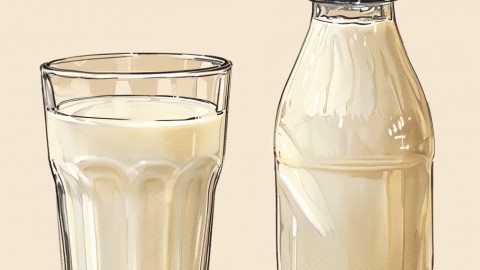Can lemon and milk be consumed together?
Generally speaking, lemons and milk can be consumed together, but in moderate amounts. The detailed explanation is as follows:

Lemons are rich in vitamin C and citric acid, while milk is a high-quality source of protein and calcium. When combined, they can provide various nutrients by complementing each other's nutritional value. Vitamin C helps promote calcium absorption and enhances its bioavailability. The acidity of lemons may cause the proteins in milk to denature and form clumps. Although this does not harm the human body, it might affect appearance and taste, and could potentially reduce nutrient absorption efficiency for some individuals.
If consuming lemons and milk together, it is important to control the quantity of lemon used to avoid excessive citric acid reacting strongly with the proteins in milk. A small amount of lemon juice or slices can be added for flavoring purposes, preventing excessive sourness that could lead to excessive protein coagulation in milk. Individual physical conditions and reactions vary; if allergic reactions to either lemon or milk components exist, or if one has a sensitive digestive system, caution should be exercised when consuming mixed beverages of lemon and milk to avoid discomfort or allergic reactions.
To ensure good health, it is advisable to consult with a doctor or nutrition expert before trying new food combinations, especially for individuals with special physical conditions or medical histories. Maintaining a balanced and diverse diet and appropriately combining various ingredients in daily meals can help improve overall nutrition and physical well-being.








